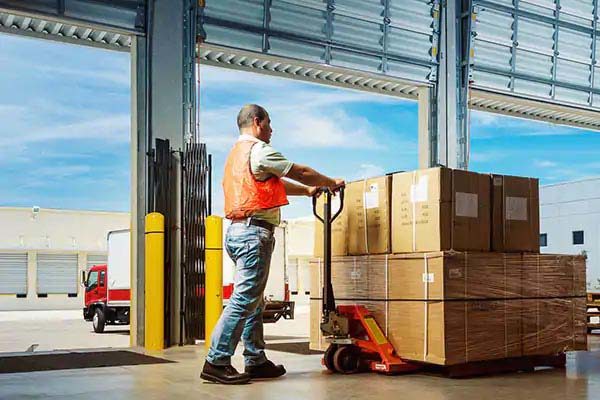Software startup jumps to the rescue
When a winter storm snarled RPM Expedite’s operations, tech developer Grasshopper jumped in to help, deploying its all-in-one warehouse and transportation solution to put things right.

As a third-party logistics service provider (3PL) that specializes in freight management services, RPM Expedite provides customized solutions for clients across all modes of transportation. The Fort Worth, Texas-based company defines itself as a hybrid less-than-truckload (LTL) and full truckload (FTL) carrier, but its offerings also include expedited, refrigerated, intermodal, and warehouse and fulfillment services.
The 3PL specializes in handling low-density, “hard to handle” freight, with manufacturers of custom furniture, aircraft parts and components, and custom lockers and cabinets making up a large part of its customer base. But whoever the client may be, RPM says its mission is to handle the constant logistical challenges that pop up from day to day.
But sometimes those challenges go way beyond the usual, like the time a winter storm shut down RPM’s operations for 10 days straight. The shutdown resulted in a significant backlog of freight and a congested dock, as the 3PL’s 100,000-square-foot warehouse hit 100% capacity, forcing the company to stow overflow goods in trailers stationed outside the facility.
Worse yet, the shutdown created an inventory-tracking nightmare. The 3PL’s manual cataloging processes were no match for the volume of freight piling up, and without a scanning system, employees had to physically hunt for unaccounted-for items. Although RPM assigned extra workers to help with the search, it wasn’t enough. Customers complained of partial orders, lost and damaged goods, and delayed or incorrect shipments. The customer service team fielded 150 phone calls daily, and claims hit an all-time high of 300 in just three months.
AUTOMATING MANUAL PROCESSES
To untangle the mess and ensure it would be better prepared for disruptions in the future, RPM turned to Grasshopper Labs, a New York-based developer of cloud-based logistics software. Launched in 2020 by the team that founded Deliveright Logistics, Grasshopper is an integrated WMS (warehouse management system) and TMS (transportation management system) solution that streamlines the flow of information and provides visibility throughout the shipping process. In addition to enabling users to view all of their orders and track individual items within a shipment, the AI (artificial intelligence)-powered solution reduces manual work, human error, and costly delays, according to the developer.
With Grasshopper’s professional service team, RPM customized the platform to automate previously manual procedures. As a key part of that effort, the team implemented a sophisticated scanning system that has facilitated the loading and unloading of inventory and enabled automated product tracking anywhere in the warehouse.
Once in place, Grasshopper’s all-in-one warehouse and transportation solution quickly put things right, enabling RPM to rapidly account for and organize its substantial volume of freight. Within three months, RPM had recovered from the setback caused by the storm. And today, its operations are optimized for efficiency, the two companies say.
Better yet, the 3PL has realized across-the-board improvements in service. Since implementing the Grasshopper system, RPM has seen an 83% decrease in calls from frustrated customers, a 78% decrease in claims, and a doubling of the number of trailers that can be loaded and unloaded at one time. Plus, its damage rate now stands at just 1%, which is well below the industry average of 10%.
“No other solution on the market today combines WMS and TMS systems like Grasshopper. It is the only option that can offset problems across the supply chain, ultimately enabling the delivery of the right items to the right customers without delay,” RPM Expedite CEO Eric Kunz said in a statement on Grasshopper’s website.
Related Articles
Copyright ©2024. All Rights ReservedDesign, CMS, Hosting & Web Development :: ePublishing